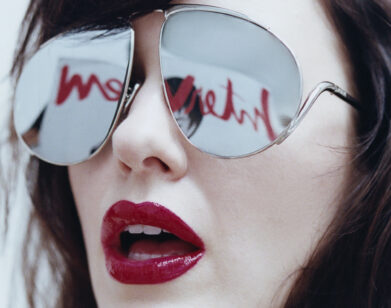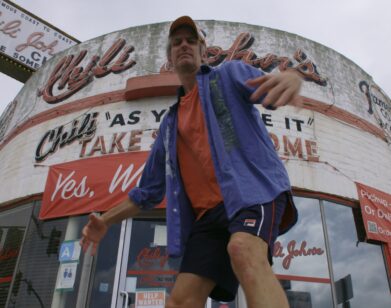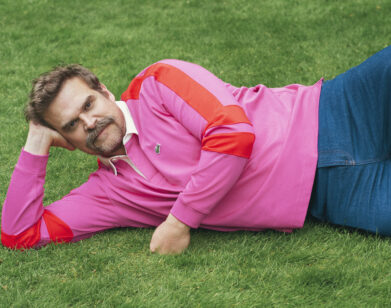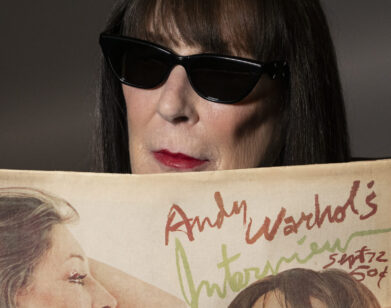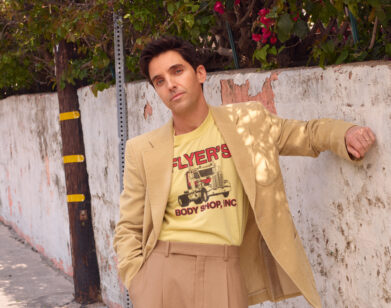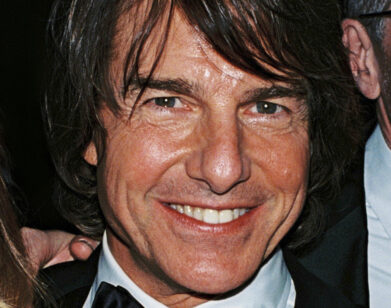Joel Schumacher’s Teenage Wasteland
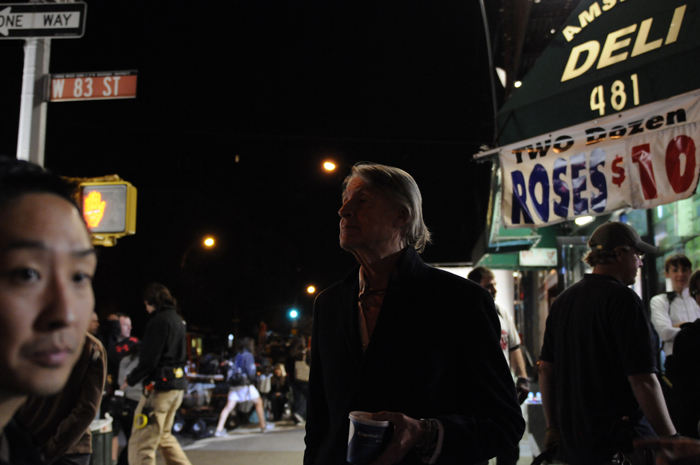
JOEL SCHUMACHER; PHOTO COURTESY HANNOVER HOUSE
Primed with their arsenal of half-baked apathy and burnout glamour, Manhattan’s young and wealthy grow weary in Joel Schumacher’s adaptation of Nick McDonell’s novel, Twelve. Shedding his golden boy image, Chace Crawford stars as White Mike, a seventeen year-old who, following his mother’s death, takes a break from school to deal drugs to his entitled Upper East Side peers. And, though he abstains from the destructive habits of his friends, White Mike–known simply as Michael to his childhood friend and moral compass, Molly (Emma Roberts)–is haunted by a deep sense of discord. Narrated by Kiefer Sutherland, this exclusive world of designer drugs, absent parents, lawless siblings, and idle frienemies is relentless, rarely quiet, and always on the verge of a breaking point. I spoke with director Joel Schumacher about the project.
DURGA CHEW-BOSE: Hi Joel!
JOEL SCHUMACHER: Hi Durga! Just one sec while I order a sandwich…I wish I could order you one but you’re over there and we’re over here.
CHEW-BOSE: Where are you exactly?
SCHUMACHER: We’re in the South, baby! Treeport, Louisiana!
CHEW-BOSE: Well, I’m in Brooklyn right now.
SCHUMACHER: Oh! I’m so jealous! New York in the summer, my hometown, baby.
CHEW-BOSE: So, I saw Twelve yesterday…
SCHUMACHER: And you recovered?
CHEW-BOSE: I did recover! New York City is a lead character, so to speak, in Twelve. How did you try to avoid the clichés of filming in Manhattan?
SCHUMACHER: We didn’t exploit New York. There aren’t any helicopter-skyline shots. We didn’t show a lot of important trademarks of the city. We sort of dealt with it as a neighborhood story. You know, in St. Elmo’s Fire, which takes place in Georgetown, you don’t see any Washington monuments because it’s really a story about a group of friends. And the same is true with Twelve.
CHEW-BOSE: Why shoot on the Red camera?
SCHUMACHER: Well, supposedly it’s less expensive. But also, night shooting does not require as much lighting with the Red and because we were doing a lot of night scenes with, for instance, Chase walking down 5th Avenue, we didn’t have to light the whole street all the way back. We could just do him near a store window. And it was a great experience and it looks like standard film.
CHEW-BOSE: What was it about Nick’s novel that made you want to turn it into a film?
SCHUMACHER: Well, I’ve made a lot of movies about young people, and I’m always more interested in dealing with the time in people’s lives when they can still correct who they are. I was in Sicily showing Phonebooth at a really big festival there, and I received a galley of the book, and I read it and I loved it. In the movie, Keifer who’s narrating, is reading prose from the novel…
CHEW-BOSE: Oh, those were taken directly from the book?
SCHUMACHER: With a few exceptions, yes. Certainly the most poetic and fluid bits, but sometimes we added a few things to let you meet a character. So, I just loved it. I couldn’t believe a seventeen-year-old had written it. It seemed very brutal and ironic, and darkly funny, and satirical, but also touching and tragic, obviously. And I tried to get the rights, but somebody had already bought them, and they didn’t want me to direct it, and I was sad, but that’s the way it goes. And somehow, I don’t really know exactly how it happened…what journey Twelve went on, but…
CHEW-BOSE: It fell back into your lap…
SCHUMACHER: Yes. And with the help of Gaumont, the oldest film company in the world, we put together a really terrific cast and got some friends, Keifer Sutherland and Ellen Barkin to help.
CHEW-BOSE: Yeah that scene where [Barkin] is wrapping herself in pearl necklaces over and over is great!
SCHUMACHER: That was her idea! You know her character right away! It hadn’t been rehearsed that way and just before we started shooting, Ellen said, “Joel, I have an idea can I try it?” And I said sure. And she asked the costume designer for trays of pearls. And we did the first take, and it was fantastic!
CHEW-BOSE: It’s certainly excessive!
SCHUMACHER: See I think those little glimpses like that one of the parents in the film, inform you about…You know, this is movie about bad parenting, obviously. I think the behavior of the young people in the movie–first all they’re children–they haven’t graduated from high school yet. It’s a lot different from people in their twenties. Young people have to grow up rapidly and become adult impersonators, and overly sophisticated, dress like adults by the age of eleven or twelve. And sex seems to qualify you to exist. The sooner you lose your virginity, you know, the more cred you have, it seems! It’s tough, I think it’s really tough. I was talking to a young bright guy this morning who was telling me that he feels his generation can no longer be shocked. And I understand what he means. We’ve created a culture where recognition has taken the place of accomplishment. “I red carpet, therefore I am” sorta thing.
CHEW-BOSE: You definitely get that sense from the character who Rory Culkin plays. His is one of the most compelling performances in the film.
SCHUMACHER: Rory is a genius. All you have to do is turn the camera on.
CHEW-BOSE: In that final party scene, where complete tragedy unfolds, Rory’s character is devastated to the point of paralysis. Why did you choose to have such complete hopelessness near the end of the film?
SCHUMACHER: I mean, there are many different stories being told, as you know. And each one is being told differently. The story is essentially about White Mike, really. This young man has involved everyone in his own way, without realizing the responsibility or the consequences. There’s a part in the book that describes a street near Park Avenue where the richest real estate in the world ends and you cross the street and you’re in Harlem. And it’s where those two cultures meet, which happens in every small town, in ever suburb, in every city. And things get complicated and really confusing if you’re young and a bit naive or trying to act like a big shot. And I think that’s part of the story. At the very very end, Emma Roberts’s character tries to explain that to Chace. He realizes that his grief is not the only grief. In that way there is hope at the very end. We control our lives and the ways in which we treat others.

